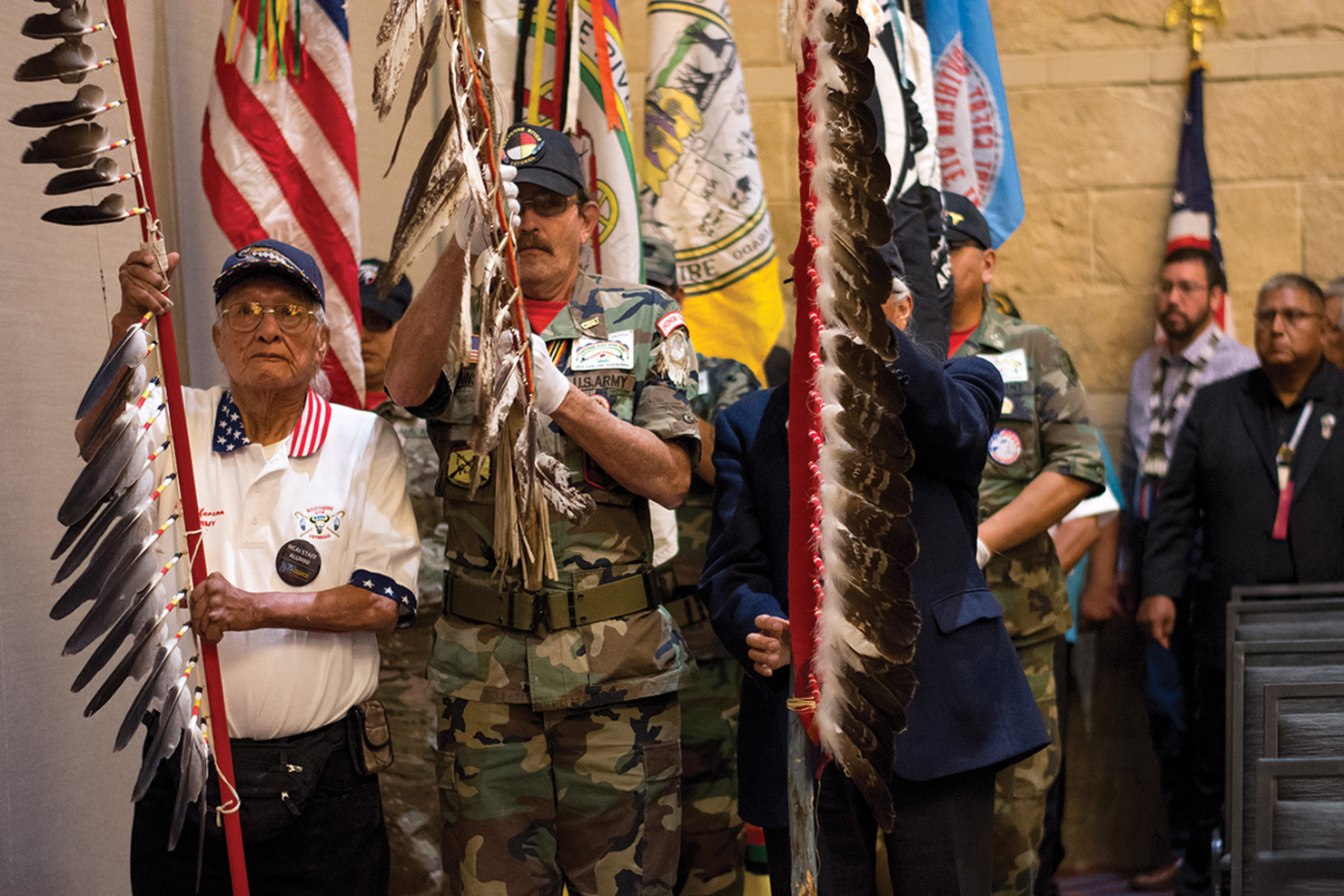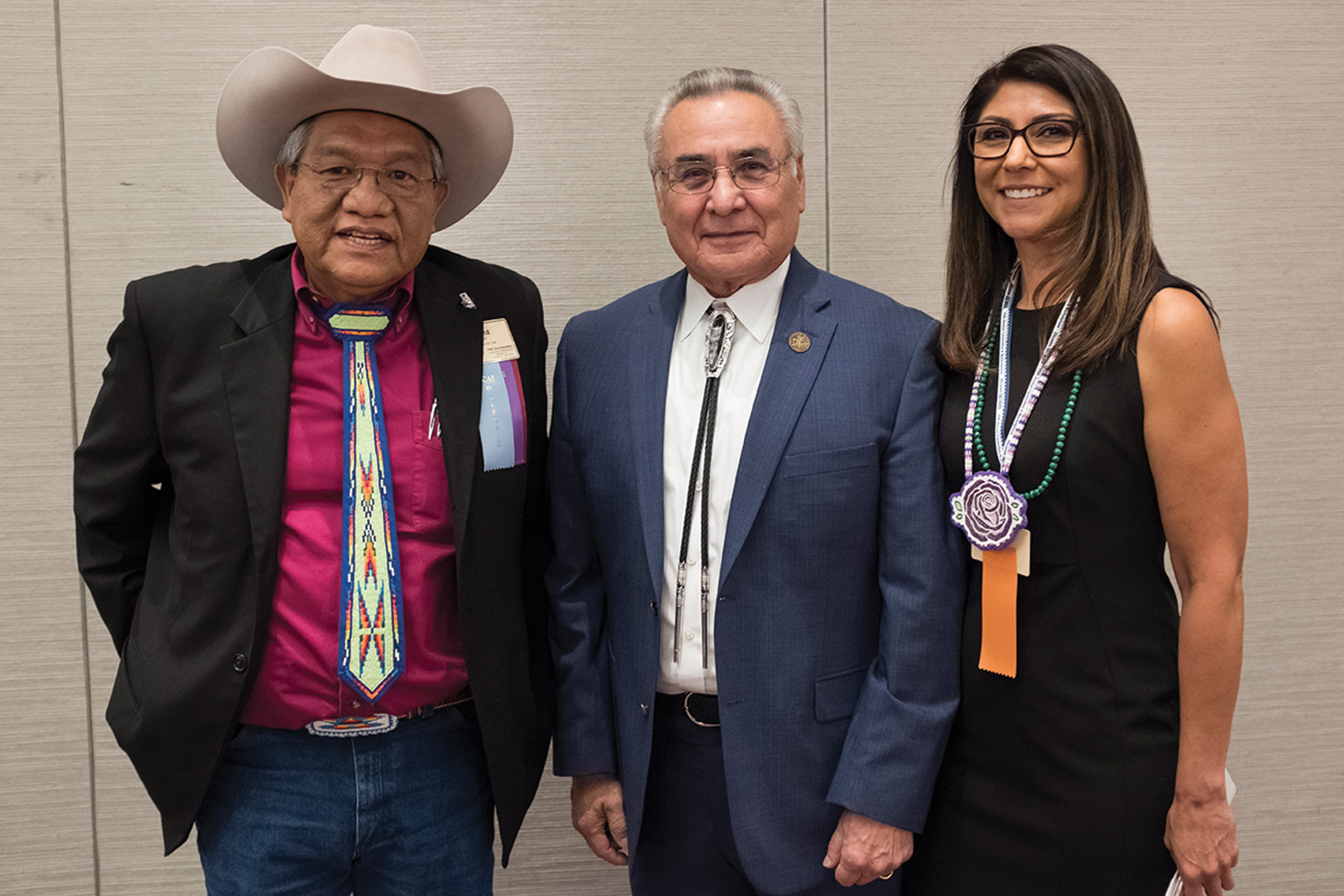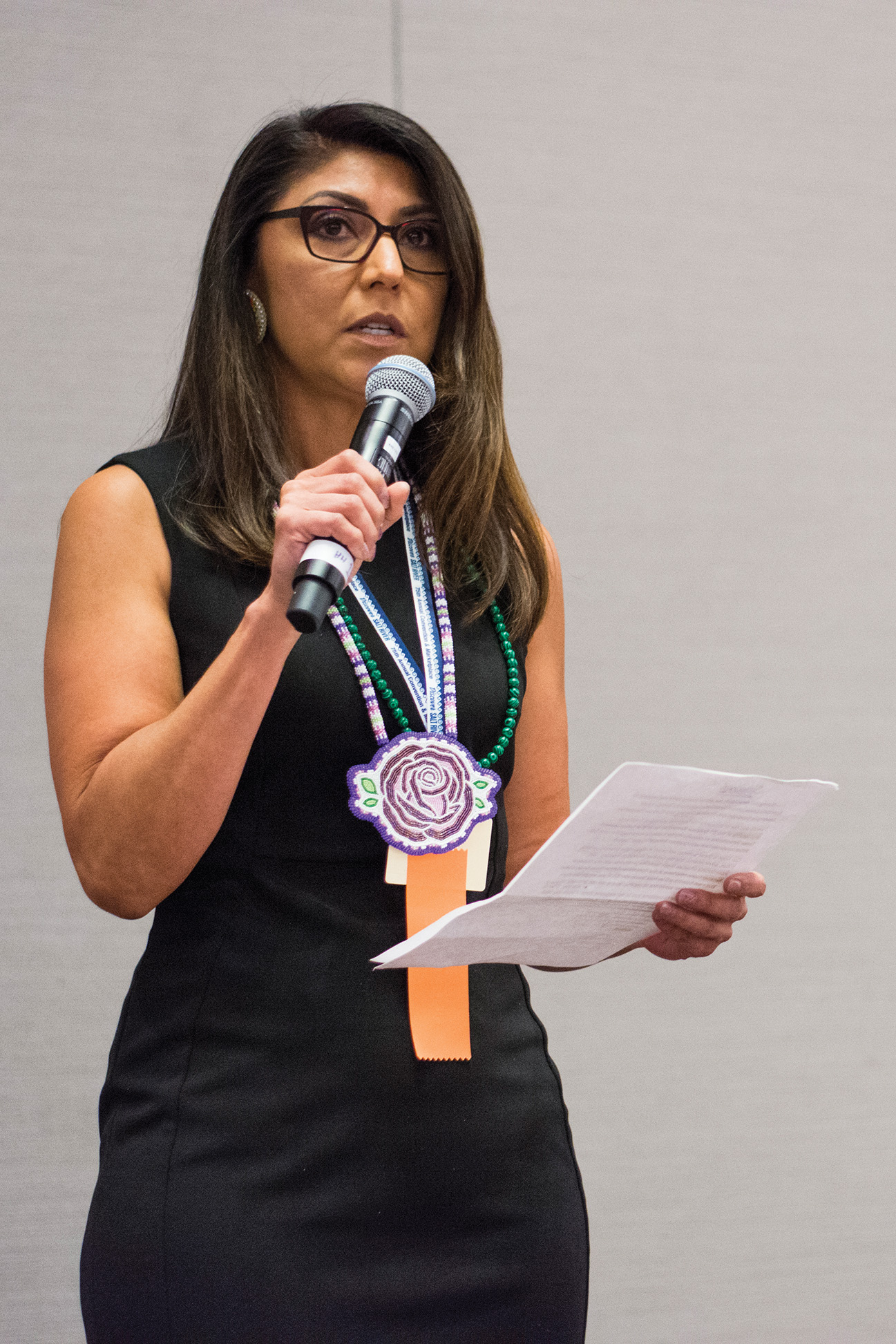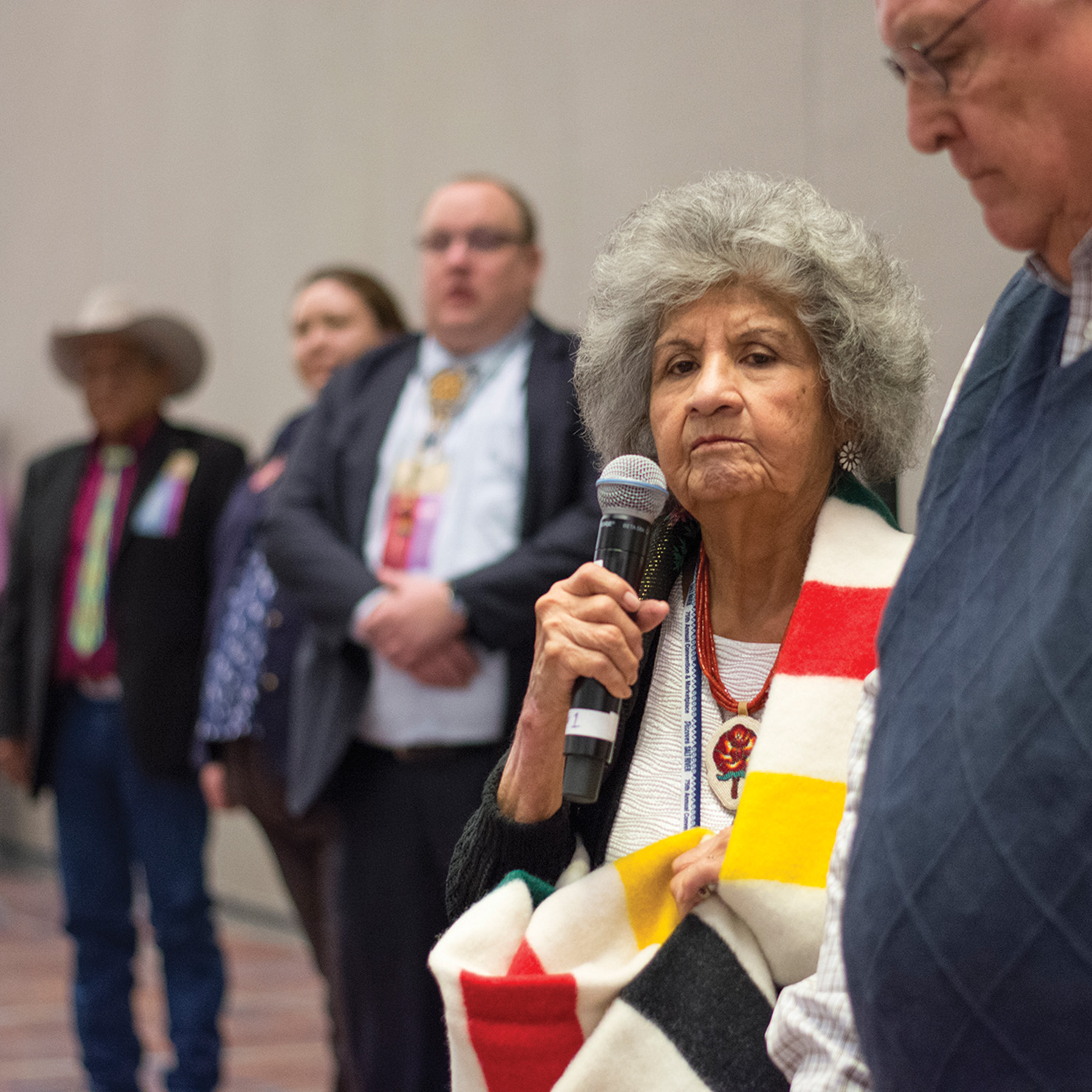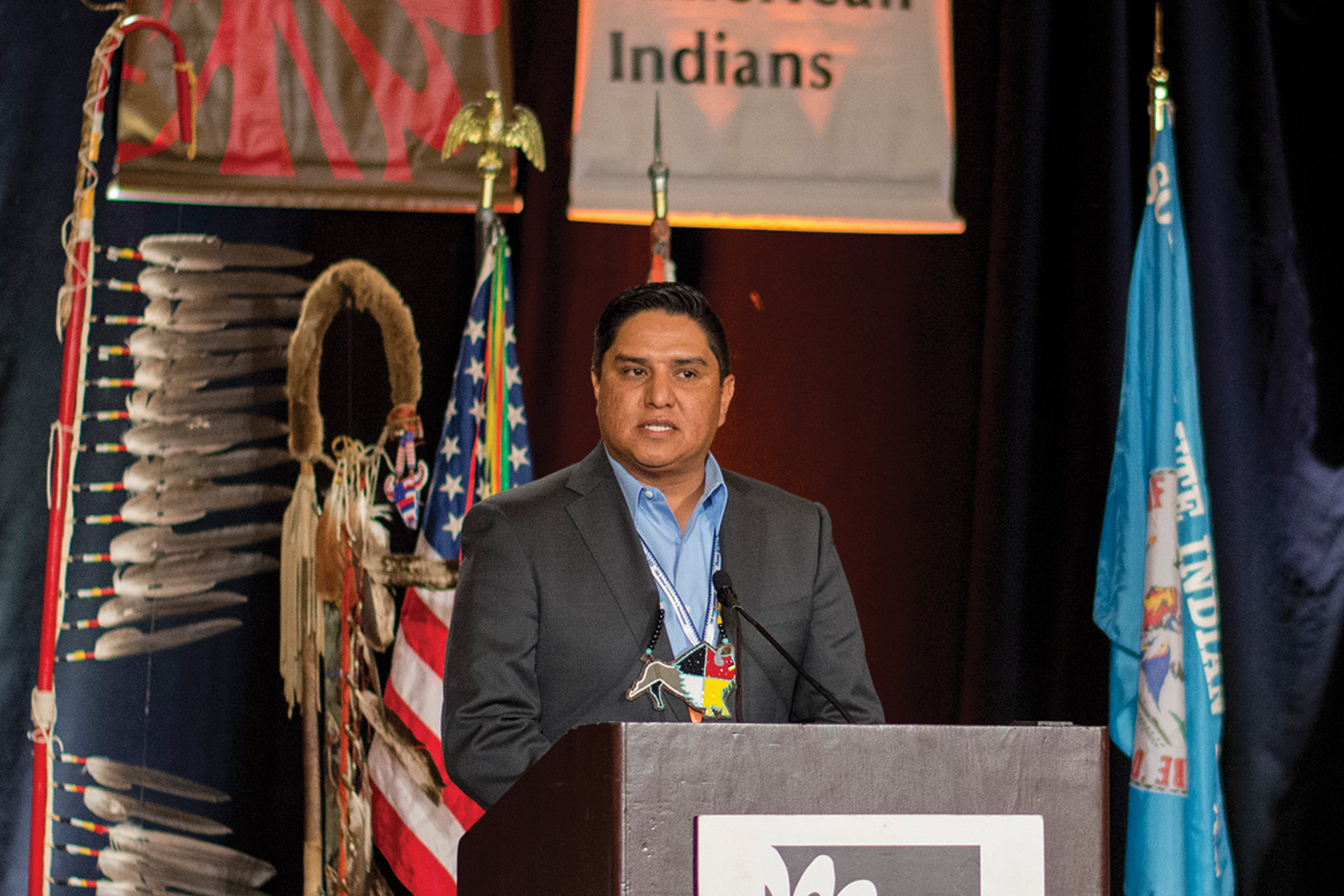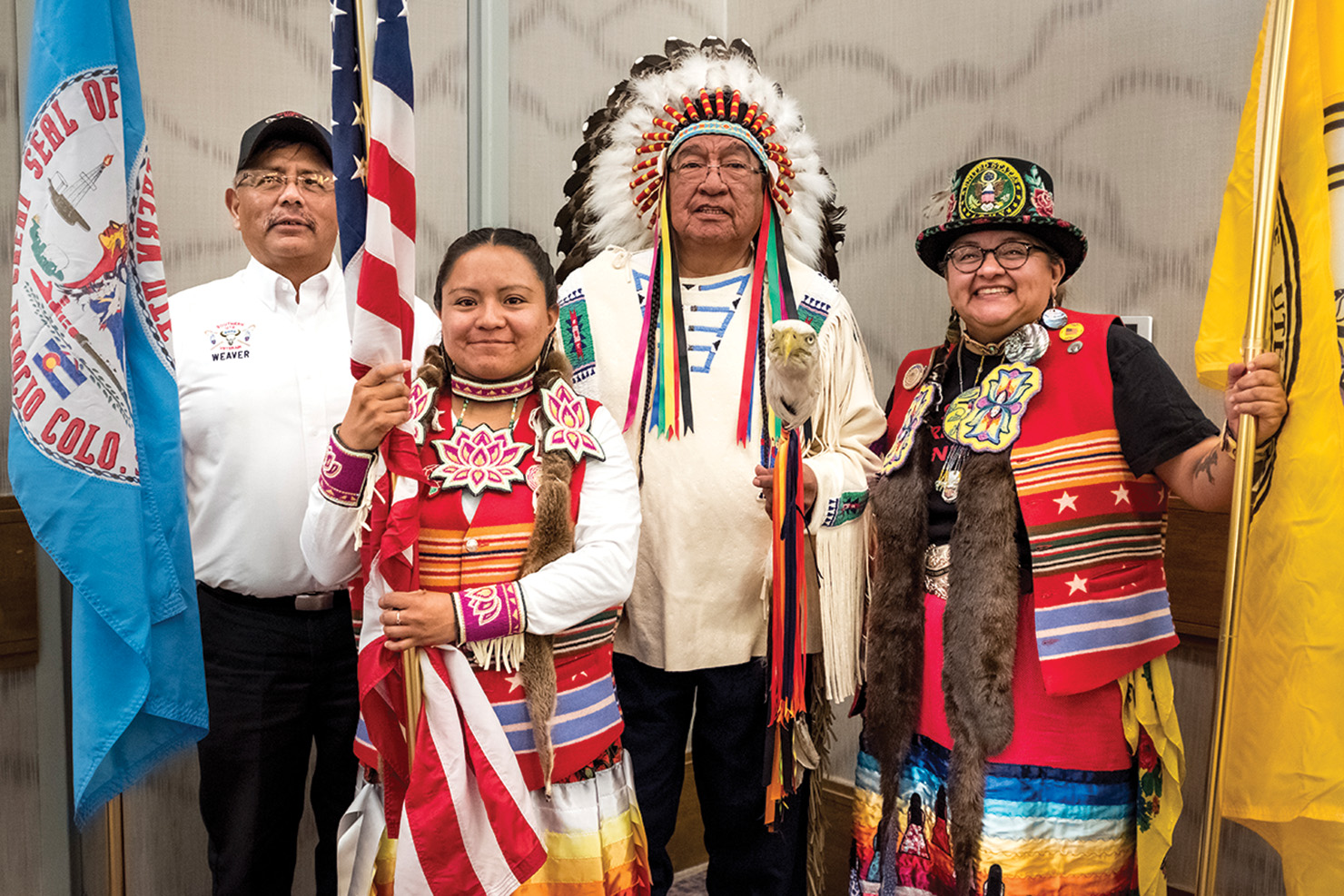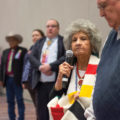The 75th annual convention and marketplace made its way back to Denver, Oct. 21— Oct. 26, returning to the city where the organization got its start. Founded in 1944, the National Congress of American Indians (NCAI) is the oldest, largest, and most representative American Indian and Alaska Native organization serving the broad interests of tribal governments and communities. According to their mission statement, NCAI, a non-profit organization, “advocates for a bright future for generations to come by taking the lead to gain consensus on a constructive and promising vision for Indian Country. Since its founding, NCAI has remained true to the original purpose of the organization: to be the unified voice of tribal nations.”
Each year tribal leadership convenes in a major North American city for their annual gathering, drawing participation from tribes across the United States and Canada. The week long convention is a combination of presentations for the general assembly, and in-depth breakout sessions covering everything from water rights to education initiatives.
Since the program was hosted in Colorado’s capitol, a special recognition ceremony was held Monday, Oct. 22 to honor the state’s longest continuous residents, the Utes. Emceed by outgoing Executive Director for the Colorado Commission of Indian Affairs, Ernest House Jr., the welcome reception invited leadership from all three of the Ute tribes to speak, and opened with a flag song and the posting of colors by an all Ute color guard.
Among those who had the honor of presenting at the reception, were Southern Ute Councilwoman Lorelei Cloud, Ute Mountain Ute Chairman Harold Cuthair, Colorado Lt. Gov. Donna Lynn and NCAI President, Jefferson Keel. The reception also honored Ute elder, Irene Cutch for her longstanding commitment to NCAI, spanning decades in tribal government with the Ute Indian Tribe of the Uintah & Ouray Reservation, in Utah. Cutch, spoke to the importance of NCAI and reminisced on her years in tribal politics, she was wrapped in a Pendleton blanket as a token of appreciation.
Tribal Sovereignty and empowerment were key issues addressed during the general assembly sessions each day. “Invisibility is one of the biggest threats to our tribal sovereignty,” Crystal EchoHawk declared. EchoHawk spoke on the importance of the Reclaiming Native Truth project, whose aim is to change the narrative, foster a greater respect and promote social justice for Native Americans through empowerment.
The First Kids 1st Initiative was emphasized by education representatives, Monday Oct. 22., the initiative is focused on Tribal nations building systems of support for Native youth to thrive. The First Kids 1st Initiative, whose motto states “Every child is sacred” is a national campaign to support Native children and youth so that they can achieve their highest potential. “Our schools, tribes can do amazing things if given the opportunity,” emphasized Ahniwake Rose, Executive Director National Indian education Association. “We believe in expression of tribal sovereignty, to have control over your education.”
NCAI’s breakout session on the legalization of marijuana, and its effect on Indian Country packed the house with tribal representatives, and those seeking clarification on a this complex legal matter now influencing many tribal economies. Thirty states have now legalized marijuana on some level, and those changing laws are impacting federally recognized tribes, while also opening up viable economic opportunities. But the path forward is complex, and even unclear for tribes who are also tied to federal funding and grants. New legislation is in the works, “There is a wave of marijuana policy change coming to Indian Country,” according to the legal panel. These policies will address medical marijuana, hemp, and decriminalization. “We treat marijuana much like we treat gaming — in regards to compliance,”explained Rion J. Ramirez, General Council, Port Madison Enterprises.

